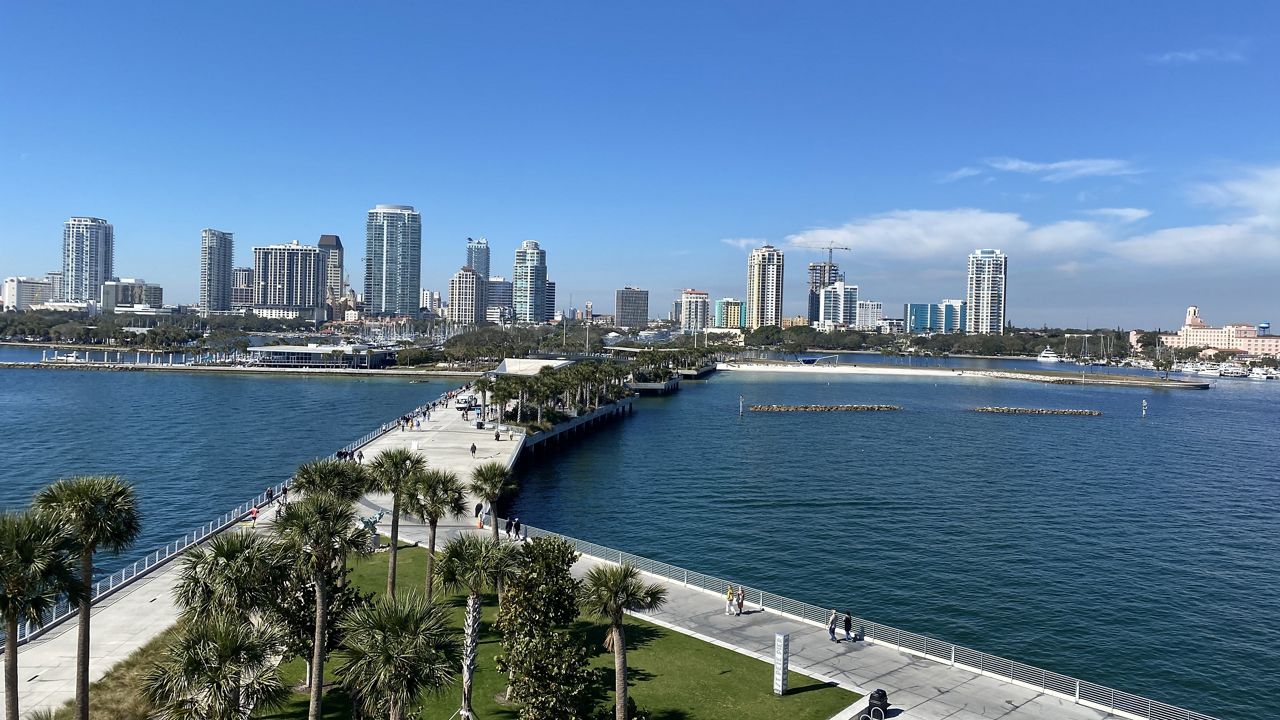TAMPA — "No contract, no work."
That was the message from the picket line near Port Tampa Bay Tuesday afternoon.
What You Need To Know
- About 180 members of the International Longshoreman's Association in Tampa joined dockworkers across the country in walking off the job Tuesday.
- ILA Local 1402 president said a main demand is protection against the automation of ports that threatens their jobs.
- The United States Maritime Alliance released a statement Monday saying they offered workers a 50% raise; ILA is asking for a 77% raise
- RELATED: U.S. could see shortages and higher retail prices if a dockworkers strike drags on
Those who were on the picket line are part of a nationwide dockworkers' strike that could cause a shortage of some goods in the coming weeks.
About 180 members of the International Longshoreman's Association in Tampa joined dockworkers across the country in walking off the job Tuesday.
They are part of the first longshoremen's strike in almost 50 years.
"We're out here for one reason. We're trying to fight automation (of ports)," said Gregory Weston, ILA Local 1402 president. "My members are the ones that are going up the ladders, unlatching containers, driving the cars off the ship."
Weston has been a member of Local 1402 for 25 years.
He says a big part of the credit for his long career goes to the relationships made on the job.
"The friendships. We treat each other just like brothers and sisters. So, that just continues me to keep coming, to raise my family, put them in school. and it's been successful."He said a main demand is protection against the automation of ports that threatens their jobs.
"Automation does not feed our families," he said. "We are skilled laborers. Automation can't keep up with us."
Local 1402 is among the 45,000 dockworkers on strike nationwide. ILA is asking for a 77% raise during a six-year period.
The United States Maritime Alliance released a statement Monday saying they offered workers a 50% raise.
It said in part, "We are hopeful that this could allow us to fully resume collective bargaining around the other outstanding issues."
The price of some goods could jump, and the strike could cost the economy billions, depending on how long it lasts.
"I think we'll get there," he said. "It's just that we need to let them know, and I'm talking about the shipping carriers, we just need to let them know that we are the ones that gave them our sweat equity to make sure that this job is going to continue to be successful."
In a statement, Port Tampa Bay said it is monitoring the situation.










